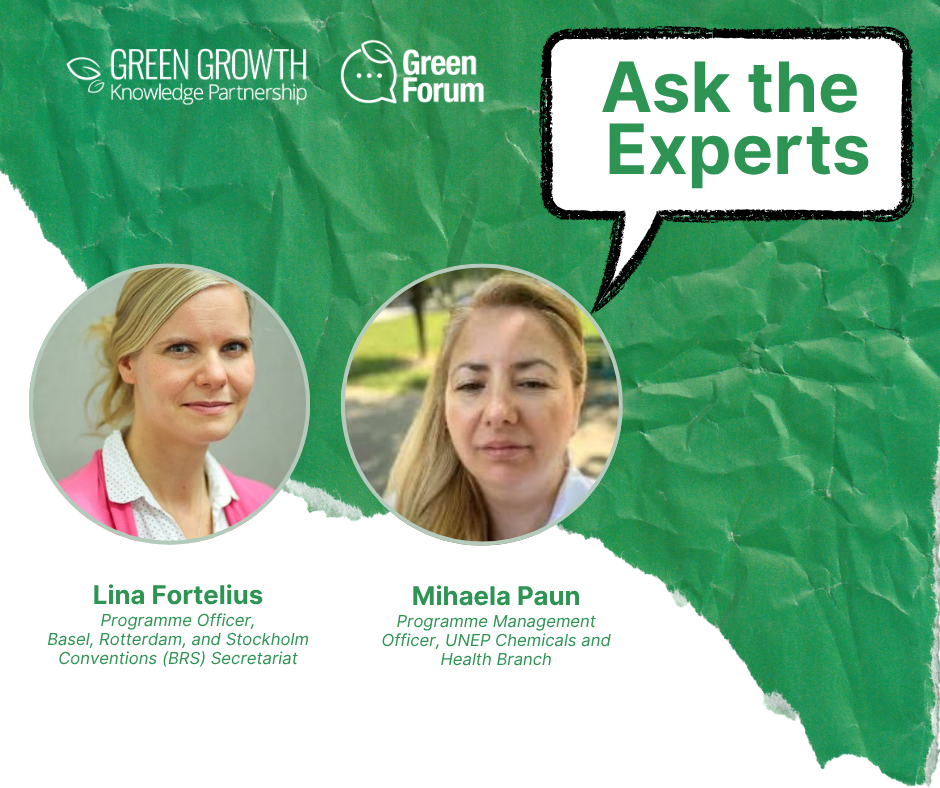The Caribbean Context: Where Every Chemical Issue Becomes a Marine Issue
In Small Island Developing States (SIDS) of the Caribbean, persistent organic pollutants (POPs) are inseparable from marine health. Every waste pile burnt, barrel of PCB oil spilled, or pesticide runoff eventually reaches territorial seas, exclusive economic zones, and even the high seas. Limited land mass and surrounding oceans magnify environmental harms, with women, youth, Indigenous peoples, workers, and other vulnerable groups experiencing the impacts most directly.
Reflecting on the unique realities of SIDS, Ms. Beeray noted: “Unlike larger nations that may have more space, time, and resources to respond gradually, our vulnerabilities are immediate, interconnected, and impossible to ignore, affecting women, youth, Indigenous people, workers, and other vulnerable groups first and worst.”
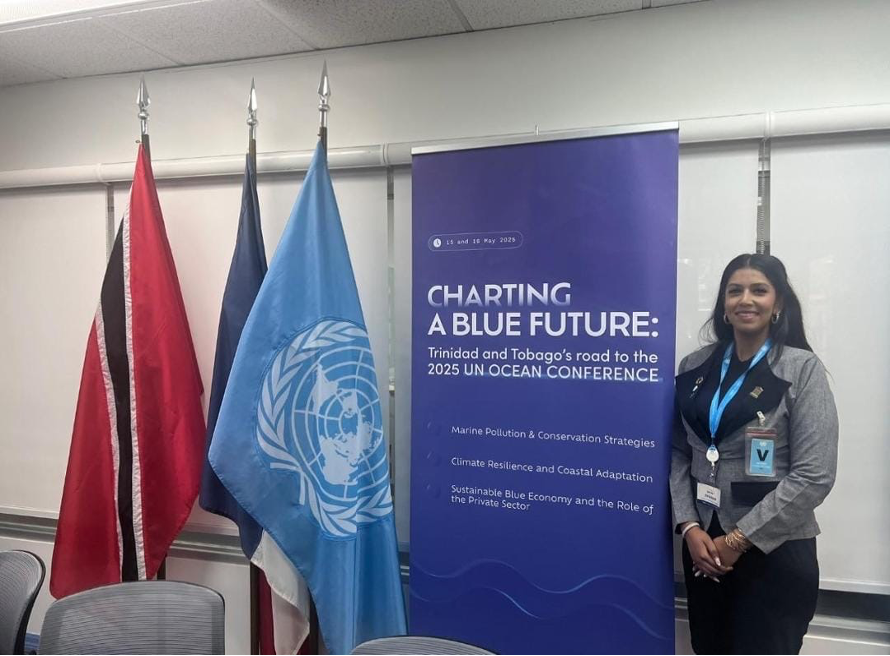
The Youth Network in Chemical and Waste Management
Since its founding in 2021, the Chemicals and Waste Youth Platform has become the world’s largest network of children, youth, and youth-led organisations dedicated to sound chemicals and waste management. Accredited under the Minamata Convention and the Basel, Rotterdam, and Stockholm (BRS) Conventions, the platform provides a dedicated space for young people to shape policy on chemicals and waste.
The platform now unites over 2,500 individuals and 400 grassroots groups—including early-career scientists, waste pickers, storytellers, and community organisers—predominantly from the Global South. In the Caribbean, youth-led movements for chemicals and waste management are still emerging but are steadily gaining ground through the Chemicals and Waste Youth Platform and related networks.
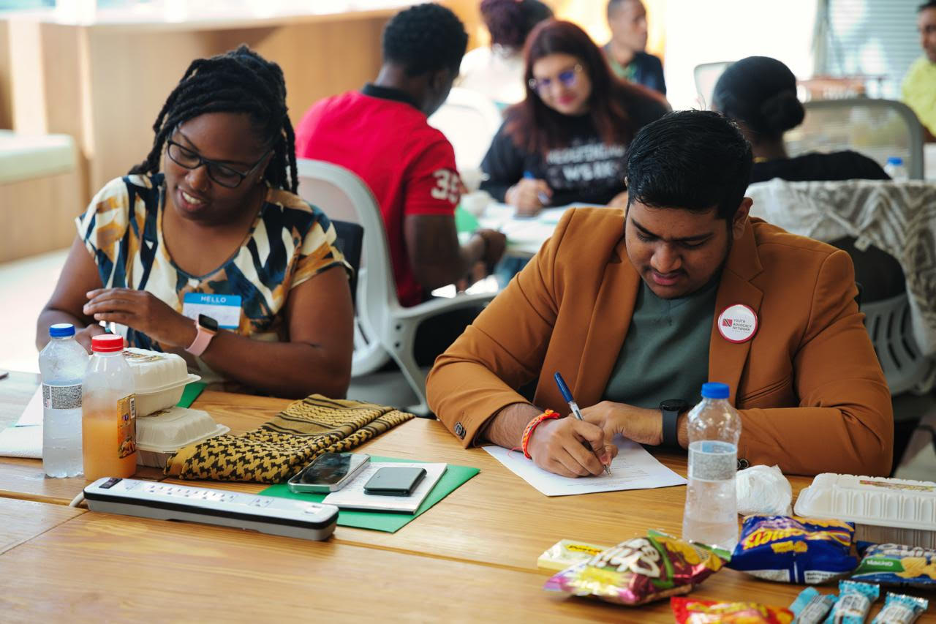
Making National Implementation Plans Truly Inclusive
National Implementation Plans (NIPs) under the Stockholm Convention present a unique opportunity to link ocean and chemical governance in SIDS. For NIPs to be effective, engagement structures must go beyond technical experts and decision makers to include community leaders and youth advocates with lived experience. This ensures that policies reflect the realities of those most affected by POPs and coastal pollution.
Existing gender action plans under the BRS Conventions provide an entry point for integrating gender considerations across chemicals and waste governance. Building on this, the Chemicals and Waste Youth Platform is preparing global consultations with young people to propose a children and youth action plan under the BRS Conventions. Too often, gender mainstreaming defaults to focusing on adult risks and disparities. Children’s health is frequently subsumed under women’s or reproductive health, limiting consideration to pregnancy, developing fetuses, and very young infants—while overlooking the distinct exposures and rights of children and adolescents.
Toward Intersectional Gender Mainstreaming in the Stockholm Convention
For the Stockholm Convention to remain effective and relevant, gender mainstreaming must be intersectional. This means recognising how age, identity, and lived experience intersect with gender to influence both exposure to hazardous chemicals and the ability to contribute to solutions. Levelling the playing field for those most impacted—especially children and youth—ensures that equality is embedded across all aspects of implementation.
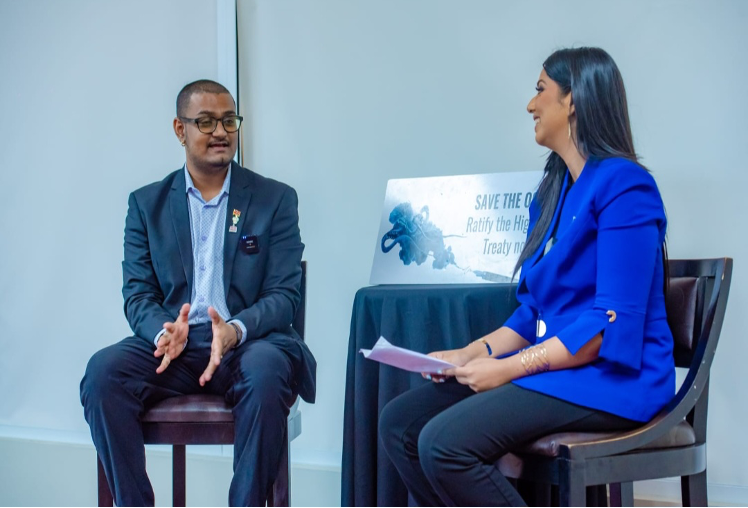
This blog post was developed drawing on insights from the GGKP regional workshop for Latin America and the Caribbean “Mainstreaming Gender in National Implementation Plans under the Stockholm Convention” held on 26 August 2025. As part of the Global NIP Update project (GEF ID 10785), funded by GEF and led by UNEP, this workshop shared practical insights on integrating gender into NIPs, featuring experiences from the national project experts, civil society and community groups.
To learn more about the Global NIP Update project, visit Global NIP Update | Green Policy Platform
For a deeper dive into the GGKP gender workshop focused on Latin America and the Caribbean, you can access the full recordings and materials here: https://www.greenpolicyplatform.org/webinar/regional-workshop-latin-america-and-caribbean-mainstreaming-gender-national-implementation
Authors:
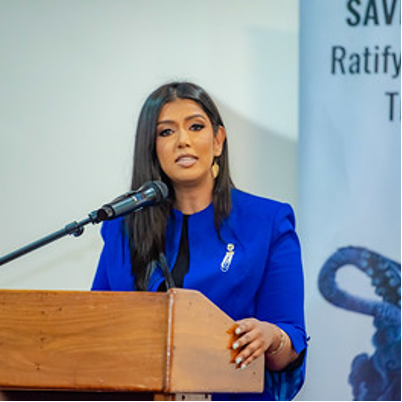 |
Arianna Beeray, Member of Gender Working Group, Chemicals and Waste Youth Platform / Head of Human Rights Department, Trinidad and Tobago Youth Advocacy Network |
 |
Soomin Bae, Knowledge Management Support Consultant, GGKP/GGGI
|


